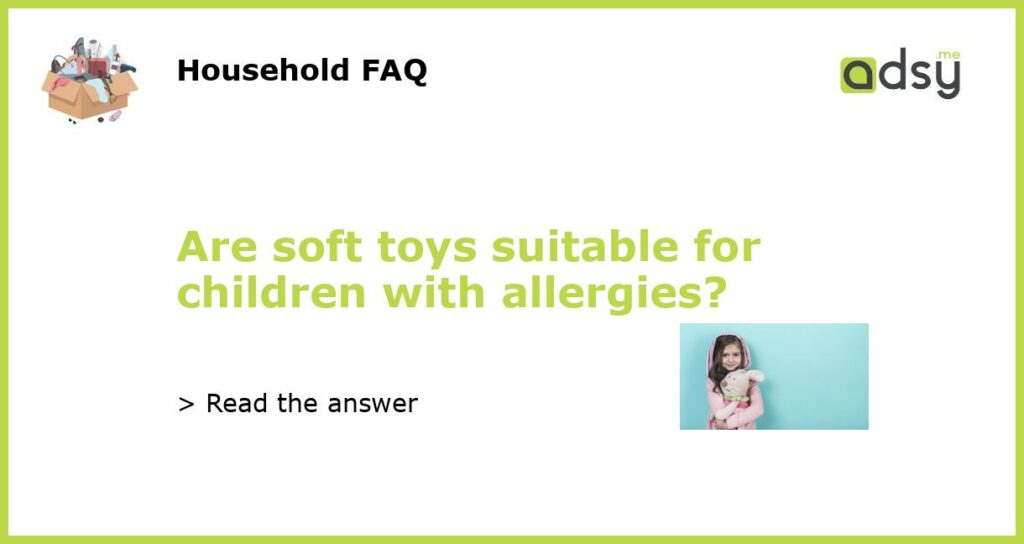Soft toys and allergies: What parents need to know
Soft toys are beloved by children all over the world, providing comfort, companionship, and endless hours of imaginative play. However, for children with allergies, the presence of soft toys may be cause for concern. While it is important to understand the potential risks, it is also worth noting that soft toys can be made allergy-friendly and can even provide therapeutic benefits for children with certain allergies.
The potential risks of soft toys for children with allergies
Soft toys can pose a risk to children with allergies in several ways. First and foremost, many soft toys contain materials such as fur, feathers or wool, which can act as triggers for allergic reactions. These materials can harbor dust mites, pet dander, and other allergens that can cause symptoms such as sneezing, wheezing, and itching in sensitive individuals. In addition, soft toys can accumulate allergens from the environment, such as pollens and mold spores, which can exacerbate allergies in susceptible children. Lastly, soft toys can also collect dust and become a breeding ground for dust mites, both of which can trigger allergic reactions.
How to make soft toys allergy-friendly
Fortunately, there are several measures parents can take to make soft toys safer for children with allergies. First and foremost, choosing hypoallergenic soft toys can greatly reduce the risk of allergic reactions. Hypoallergenic soft toys are made from materials that are less likely to cause allergic reactions, such as organic cotton, microfiber, or synthetic materials. These toys are typically free from common allergens and are designed to be easily cleaned, which can help prevent the accumulation of dust and other allergens. Additionally, regularly washing soft toys in hot water can help eliminate dust mites and allergens that may be present.
The potential therapeutic benefits of soft toys for children with allergies
Despite the potential risks, soft toys can also provide therapeutic benefits for children with allergies. Soft toys can help calm and comfort children, providing a sense of security and reducing anxiety, which can be particularly beneficial for children with allergies who may experience heightened stress due to their condition. Soft toys can also serve as a distraction during medical procedures or when taking medication, helping to alleviate fear and discomfort. Furthermore, soft toys can be used as teaching tools to educate children about their allergies, helping them to better understand and manage their condition.
Soft toys and allergies – finding the right balance
Soft toys can bring joy, comfort, and educational benefits to children, including those with allergies. While there are potential risks associated with soft toys for children with allergies, these risks can be mitigated by choosing hypoallergenic toys and practicing good hygiene measures, such as regular washing. Ultimately, it is important for parents to assess the individual needs and sensitivities of their child when deciding whether soft toys are suitable for them. Consulting with a healthcare professional or allergist can also provide valuable guidance in ensuring the safety and well-being of children with allergies.






